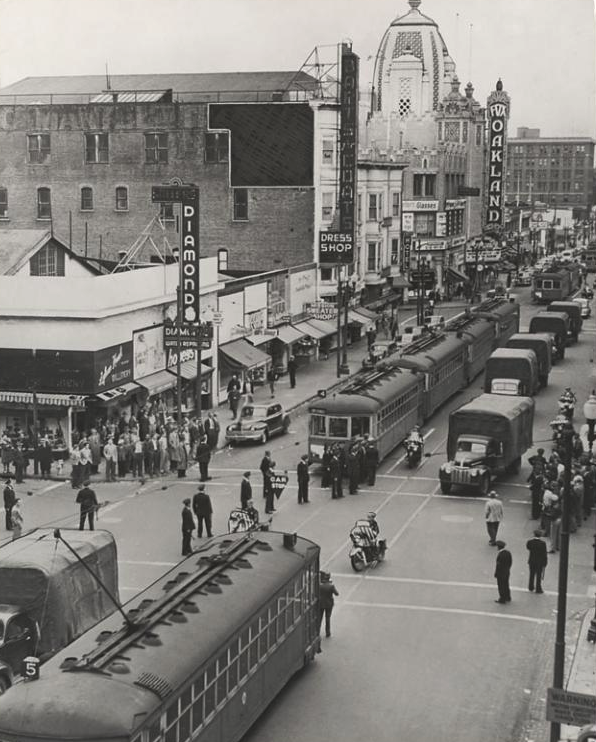In 1946, a few hundred department store employees, mostly women, walked off the job and started a picket line in downtown Oakland. Within a few weeks, more than 100,000 workers joined them, filling the streets with protesters who danced under holiday wreaths hanging from lampposts. “This seemingly small action turned into the biggest challenge to corporate domination of American workers in the postwar years,” according to Erik Loomis, author of “A History of America in Ten Strikes.”
Despite an unprecedented outpouring of support, the story of those department store workers turned out to be a cautionary tale, rather than a triumph, for workers seeking to unionize. In the backlash that followed the strike, Congress passed the Taft-Hartley Act, legislation that continues to hobble labor organizing to this day.
Featuring interviews with Erik Loomis, labor historian Gifford Hartman, and archival recordings of workers who participated in the 1946 uprising, this episode explores why Oakland was the site of “America’s last great general strike” – and the connections between this 74-year-old conflict and the struggles of today’s “gig economy” workers.
Listen here: Apple / SoundCloud / Spotify.




East Bay Yesterday can’t survive without your support. Please donate to keep this show alive: www.patreon.com/eastbayyesterday




